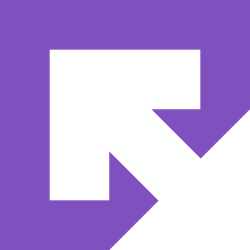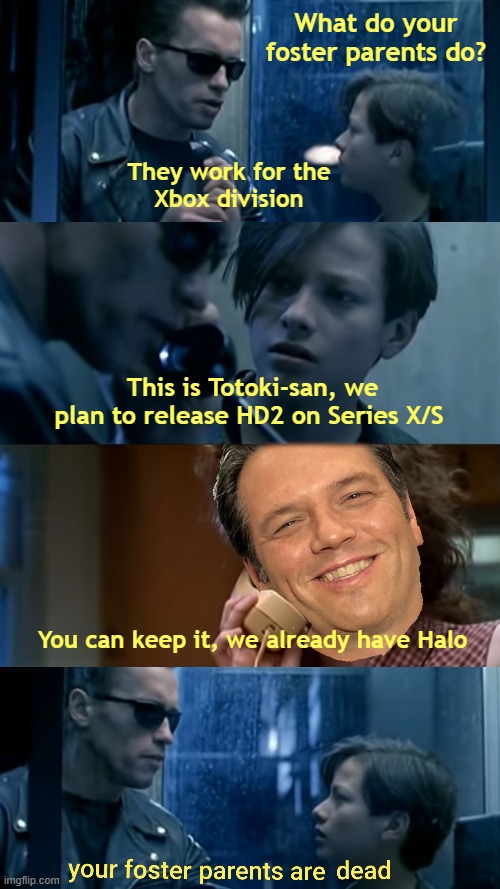Console wars are mostly over unless Xbox cange there mind. It's kinda over as soon as they announce another port, especially if its something like Halo, HellBlade, Starfield etc.
Nintendo isnt even releasing a pure home console anymore, and they stopped trying to release current gen tech since Wii. But I can see how Switch 2 can threaten PS if they make something that can play current gen games. PC also isn't a console.
Maybe soon we can rest my fellow warriors lol
PC isn't a console but it competes with consoles more now than any point in the past. Competent gaming PCs have never been more affordable compared to consoles, vs. previous generations (where the price gap was larger). 3P releases between both console & PC is higher now than it ever has been in the past.
So I'd say it's a less direct competitor in the blatant way, for sure. But new market realities might make it a more potent competitor than a direct competitor like Xbox has proven over the past 7-8 years.
- that leaker that got 2 straight things right said HD2 is closing in on 10 million sold. So your math checks out. Which would also mean HD2 is selling 55-60% on PS5 worldwide. Not the 30% some idiots said last week.
- I find it impossible for Xbox Series to be down 51% for 2024. Just no way. I cane see it being down - 30% at the most. Like worse case scenario.
Does anyone know the YOY drop Xbox had for 2023 vs 2022? Because whatever that is, I can see 2024 doubling it.
Sadly I did look at VGChartz, and it shows Xbox at barely little over 25 million lifetime as of early 2024, and a 20% YOY drop for 2023 vs. 2022. Considering the games MS released in 2023, and what they aren't releasing as equivalent this year (outside maybe Indiana Jones), yeah I can see the drop being 40% over 2023. If they did ~ 7.2 million for 2023, then a worst-case for 2024 could be 4.32 million.
But if Indiana Jones is a big hit, if Hellblade 2 is a hit, if COD marketing is strong enough as a tie-in and the ABK stuff for Game Pass is good enough, I guess maybe they can cut that drop to just 30% or even 20%, so a best-case is they can sell ~ 5.76 million for the year.
Either way you look at it, that's a really bad number for a mass-market traditional console. But it'd still be better than 4.32 million. But facing that type of momentum, they'd barely break 30 million lifetime by EOY in a best-case (given what we know for now), and I think even without the multiplat stuff happening, the best-case wouldn't go up much because...all of their games are Day 1 on PC (including Steam) anyway. All the less reason to buy an Xbox console.
Streaming. I tried Geforce Now on my LG OLED and it worked brilliantly last year. Where streaming will be in the next 5-10 years will help determine the future of gaming.
The reality is that consoles as we know it are not going to survive another 15-20 years. They might still exist, but we're reaching a point where they won't make sense for manufacturers and they won't make sense for gamers.
It's why I think Sony is crazy not to go after Take2, because you're going to need a much larger 1st party offering in the near future. Their sports games alone are going to make them key.
Something very interesting about cloud gaming's role in this I never considered, but I saw someone else bring it up somewhere else. Basically, I don't think streaming is going to be this godsend for gaming growth. Not only because of infrastructure issues in places like the U.S but, and this is what I didn't consider before: capacity issues.
If streaming really is the future, and let's say every person with a console suddenly switched to streaming...you're going to need a server for every single one of those users. At all times. So it's not like the platform holder is saving on hardware production costs in that sense; those costs are just shifted to the server with maybe some small amount of savings over time, but nothing significant.
If every PS5 owner were using a cloud streaming stick as a client, you'd still need 55 million PS5-level server racks, that'd have to be operated at all times, incurring regular operational costs, and for GAAS titles you'd still additional servers for the multiplayer. Maybe Sony saves costs in the console shell design, packaging, and shipping/distribution, but that's about it. And those costs would probably be shifted towards beefing up the backend, which would need more hardware. So the savings are not only negated, but wouldn't be enough to cover the additional costs!
And, again, you need streaming client sticks at the very least for those would-be cloud gamers. Those will cost money to produce. If for example Sony were able to suddenly reach 10x as many people that way vs. traditional console boxes, the total production costs would probably be the same when all's said and done. But total hardware production costs would bloat significantly since they'd need console-level servers for every single client, they'd need more hardware to manage the backend for all of those servers, and they'd have to manage operational costs for all that cloud compute. The only thing Sony actually saves on in theory are shipping and endpoint logistics with distributors and retailers, and (very cheap) shell casing for console hardware. They are likely actually spending more money in that future vs. what they currently have.
And it's not just Sony either, they're just an easy example to use. The same is true for Microsoft, but in theory at least they have the capital to take on the burden of those costs. As for customers, well with cloud streaming being the future is also going to come high-priced subscription costs to access the cloud-distributed game content. If the costs for managing the cloud increases significantly, you can bet B2P sales are going to be either removed or heavily limited. The platform holders will want constant revenue with sizable profit margins to justify a cloud-only future and tying the content to a subscription is how they'd do it.

www.resetera.com



